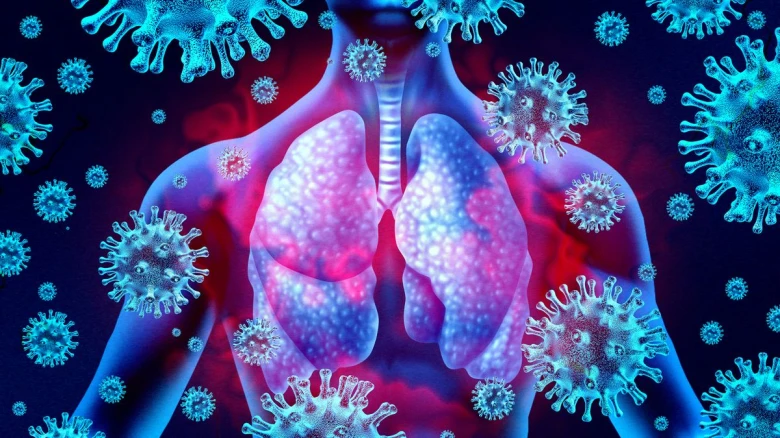Regional

While typically the SARS-CoV-2 virus becomes undetectable in the upper respiratory tract about one to two weeks after infection, the study highlighted the...
Digital Desk: A recent study published in Nature Immunology has uncovered concerning findings regarding the longevity of SARS-CoV-2, the virus responsible for Covid-19, within the lungs of specific individuals. The research suggests that the virus can persist in these organs for an extended period, up to 18 months after the initial infection.
The study, conducted by a team from the Institut Pasteur, delved into the dynamics of viral persistence and its correlation with innate immunity—the body's primary defense mechanism against pathogens.
While typically the SARS-CoV-2 virus becomes undetectable in the upper respiratory tract about one to two weeks after infection, the study highlighted the presence of the virus in what scientists term 'viral reservoirs.' These reservoirs harbor the virus in a latent and undetectable state within the body, akin to the behavior observed in HIV infections.
Michaela Muller-Trutwin, Head of the Institut Pasteur's HIV, Inflammation, and Persistence Unit, emphasized their observations of persistent inflammation in primates previously infected with SARS-CoV-2. This led the researchers to suspect the prolonged presence of the virus in the body.
Analyzing biological samples from infected animal models, the scientists discovered lower levels of persistent virus in the lungs for the Omicron strain compared to the original SARS-CoV-2 strain. Nicolas Huot, a researcher in the same unit, highlighted the surprise of finding viruses in immune cells even after extensive periods, despite negative regular PCR tests.
Moreover, the team successfully cultured these viruses and observed their ability to replicate using developed tools originally intended for HIV studies.
The study uncovered a potential link between the persistence of SARS-CoV-2 and the behavior of natural killer (NK) cells—a crucial component of the innate immune system. Muller-Trutwin emphasized the limited exploration of NK cells in SARS-CoV-2 infections despite their established role in controlling viral infections.
The findings revealed that in certain cases, SARS-CoV-2-infected macrophages became resistant to destruction by NK cells. However, in some instances, adaptive NK cells managed to adapt to the infection and successfully destroyed these resistant cells.
This research underscores the potential significance of innate immunity in controlling persistent SARS-CoV-2 viruses within the body, shedding light on new avenues for understanding the virus's behavior post-infection.
The implications of this study may lead to further investigations to develop strategies that boost innate immunity responses or potentially target viral reservoirs, offering hope for managing the long-term impacts of Covid-19.
Leave A Comment